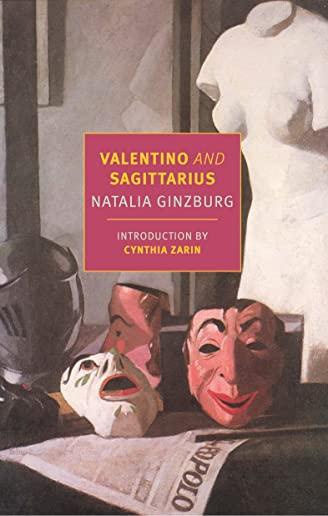
description
d fraudsters by one of the twentieth century's best Italian novelists. Valentino and Sagittarius are two of Natalia Ginzburg's most celebrated works: tales of love, hope, and delusion that are full of her characteristic mordant humor, keen psychological insight, and unflinching moral realism. Valentino is the spoiled child of doting parents, who have no doubt that their handsome young son will prove "a man of consequence." Nothing that Valentino does--his nights out on the town, his failed or incomplete classes--suggests there is any ground for that confidence, and Valentino's sisters view their parents and brother with a mixture of bitterness, stoicism, and bemusement. Everything becomes that much more confused when, out of the blue, Valentino finds an enterprising, wealthy, and strikingly ugly wife, who undertakes to support not just him but the whole family. Sagittarius is another story of misplaced confidence recounted by a wary daughter, whose mother, a grass widow with time on her hands, moves to the suburbs, eager to find new friends. Brassy, bossy, and perpetually dissatisfied, especially when it comes to her children, she strikes up a friendship with the mysterious Scilla, and soon the two women are planning to open an art gallery. But knowing better than everyone, it turns out, is not that different from knowing nothing at all.
member goods
No member items were found under this heading.
notems store

Doctrina Christiana: The Timeless Catechism ...
by Bellarmine, S. J. St Robert
Hardcover /Hardcover$36.99
Return Policy
All sales are final
Shipping
No special shipping considerations available.
Shipping fees determined at checkout.






